10 of the most expensive states to live in

Monkey Business Images // Shutterstock
10 of the most expensive states to live in
Couple walking on elevated park in New York with skyline
You get a job offer with an incredible-sounding salary, but how far will that money go in the place you’d have to live? Before you move, whether for a job or another reason, knowing just how far your income will take you when factoring in the cost of living is helpful.
The Cost of Living Index is calculated based on the price of more than 60 goods and services. The U.S. average is 100, and each place’s index is a percentage of the U.S. average. Those below 100 are cheaper than average, and those above 100 are more expensive.
The most expensive states are primarily on the coasts, particularly in the West and Northeast. The cost of living tends to be lower in the Midwest and South.
New Jersey Real Estate Network measured the cost of living in each state during the second quarter of 2022, using data from the Council for Community & Economic Research. The survey measures the cost of living in cities across the U.S. Researchers calculated each state’s cost of living using the average of the indices of metro areas and cities in that state.
![]()
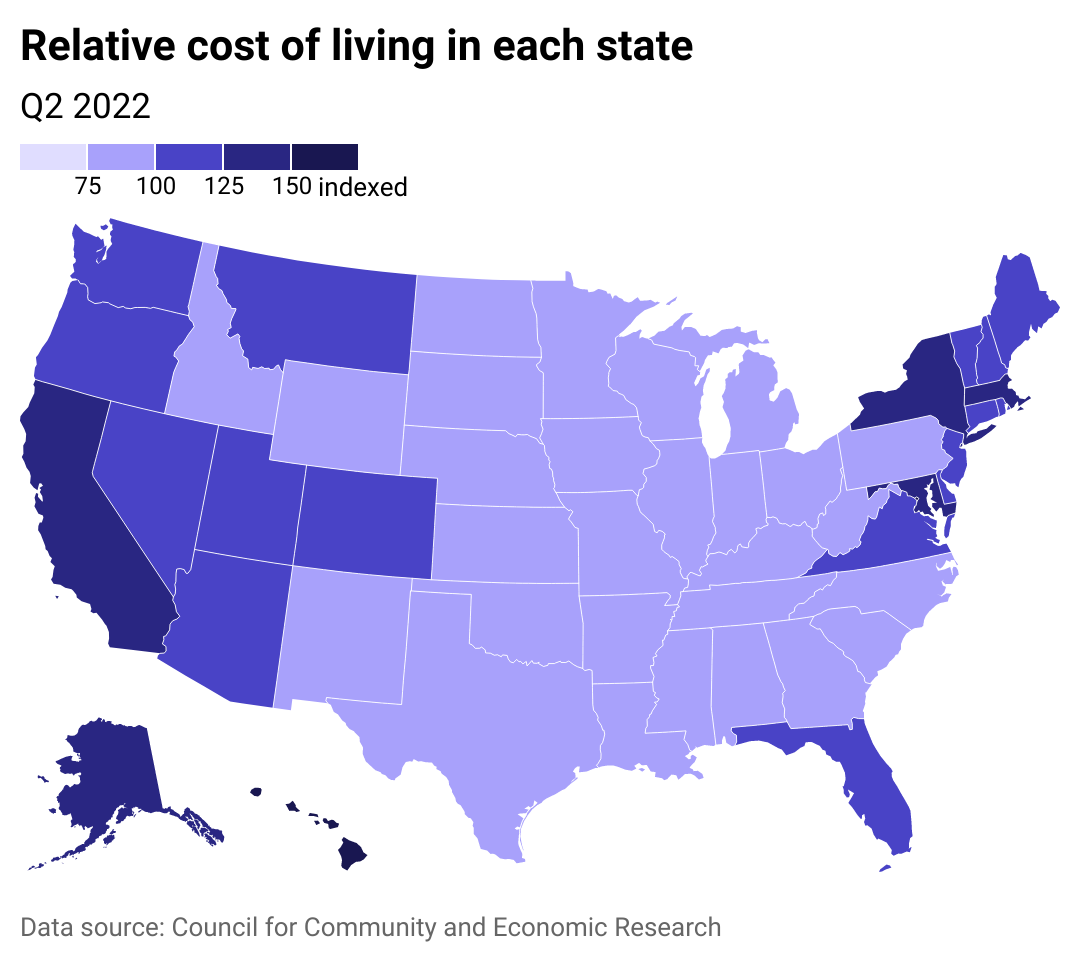
New Jersey Real Estate Network
Cost of living across the US
Map showing the cost of living across the U.S.
Many factors go into calculating the cost of living, but housing is a central point. In areas of the country—particularly on the coasts—where land is scarce, but many people want to live, increased demand puts more pressure on housing prices and apartment rents. This demand trickles down to prices for other goods and services because if rents are high, those prices get added to what people pay for goods.
Costs are high in Alaska and Hawaii primarily due to their remote locations, making it more expensive for stores to ship essential goods.
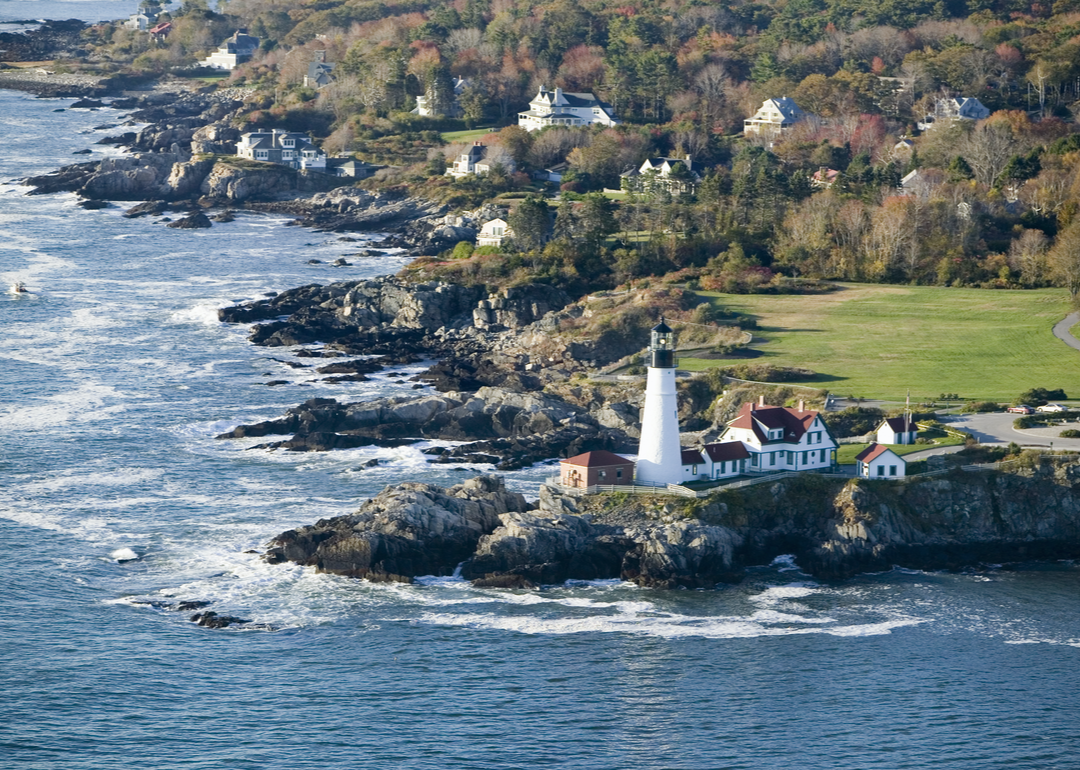
Joseph Sohm // Shutterstock
#10. Maine
Portland Head Lighthouse and coastline
Average Cost of Living Index: 116.9
The cost of heating a home in Maine can be an expensive prospect. More than 6 in 10 Mainers use fuel oil, the most costly heating option in the country, and prices can be volatile depending on supply and demand.
Some relief may be coming to low-wage earners, as a new state law ties Maine’s minimum wage to the cost of living index and is adjusted annually. By 2023, 147,000 Mainers will get a pay raise from $12.75 to $13.80 per hour.
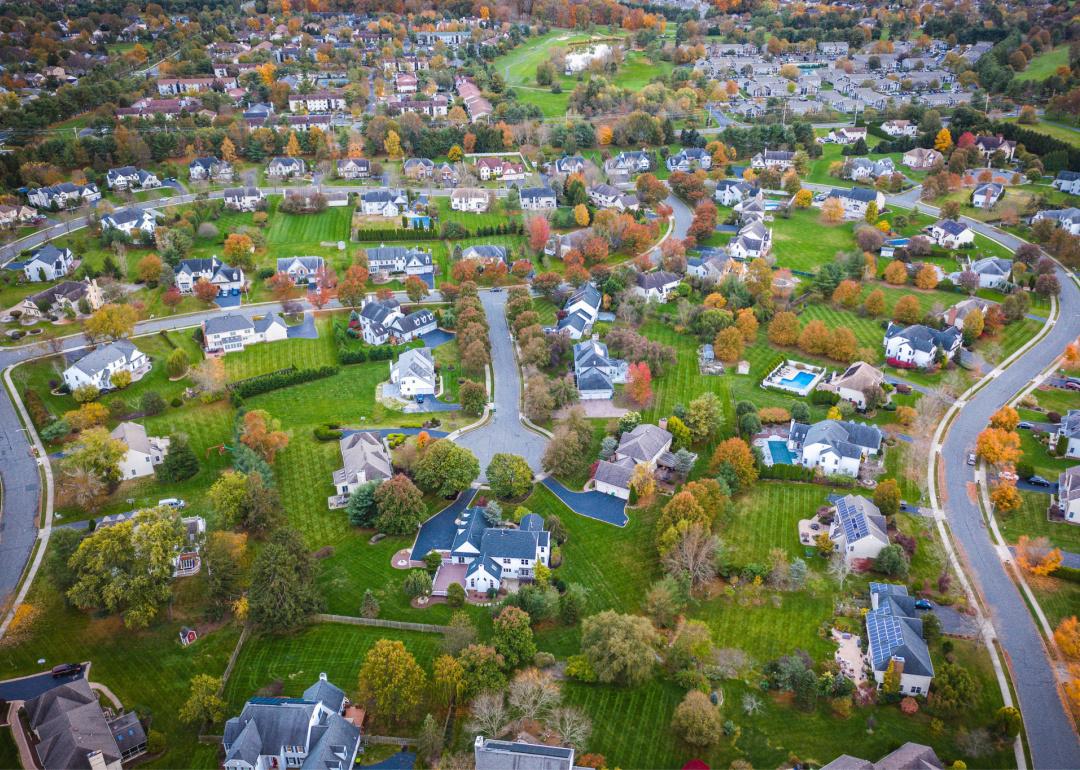
FotosForTheFuture // Shutterstock
#9. New Jersey
Aerial view of homes in New Jersey
Average Cost of Living Index: 118.6
Apartment rents in New Jersey have spiked, particularly in Jersey City. Many New Yorkers have relocated across the Hudson River to this city for more space with the same urban feel and relative accessibility to New York. Other parts of the state have cheaper housing, but overall, housing costs are considerably higher than the U.S. average.

Bob Pool // Shutterstock
#8. Oregon
Red barn in Hood River Valley surrounded by pear blossoms
Average Cost of Living Index: 120.6
High-paying jobs in Oregon also come with higher costs. Housing prices have increased 30.5% from 2010 to 2020 due to high demand and low supply, per a 2021 report from Filterbuy.
Gas prices are also higher in Oregon than in other states due to a lack of refining capacity. Oregon also prohibits self-serve gas pumping, so residents must pay for the costs associated with employing gas station attendants.
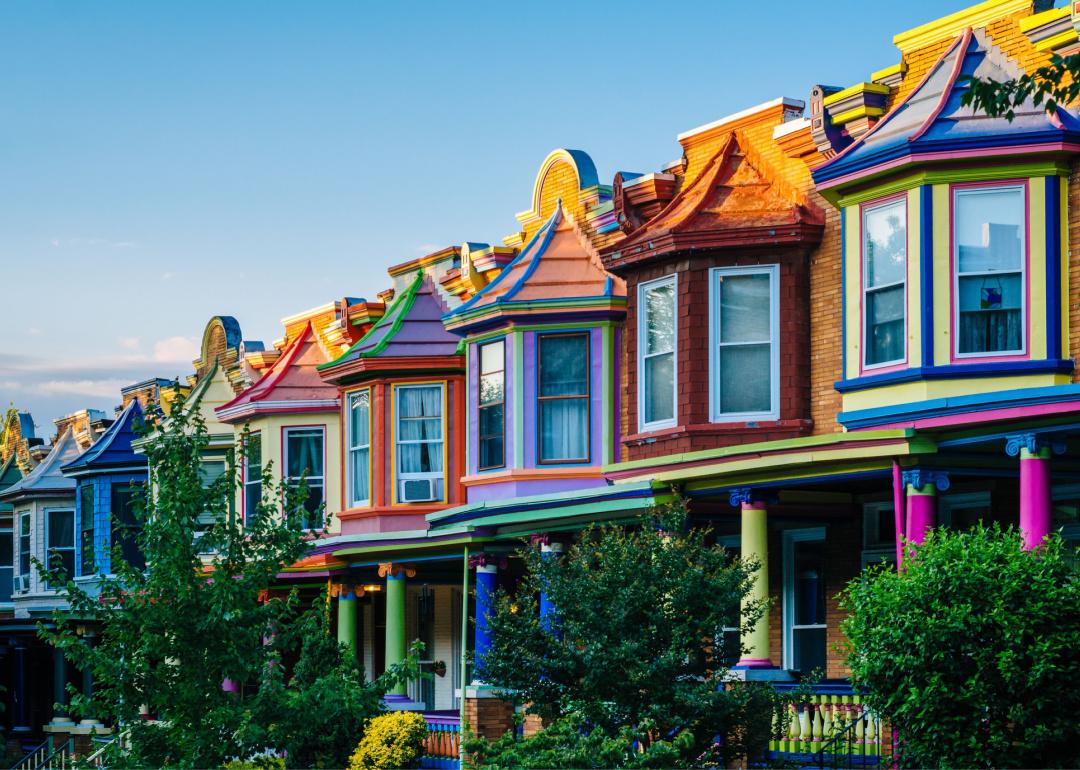
Jon Bilous // Shutterstock
#7. Maryland
Colorful row houses in Baltimore
Average Cost of Living Index: 125.1
Car insurance in Maryland is much higher than national averages because the state mandates high minimum liability insurance, personal injury protection, and uninsured motorist coverage. Drivers in Maryland pay more—about $2,120 annually—for minimum coverage than the national average for full coverage—about $2,000 annually. Full coverage in Maryland costs more than two times the national average at about $5,000 per year.
The price of insurance contributes to Maryland’s high cost of living. According to Filterbuy, the Baltimore metro area’s housing costs increased 22.3% from 2010 to 2020.
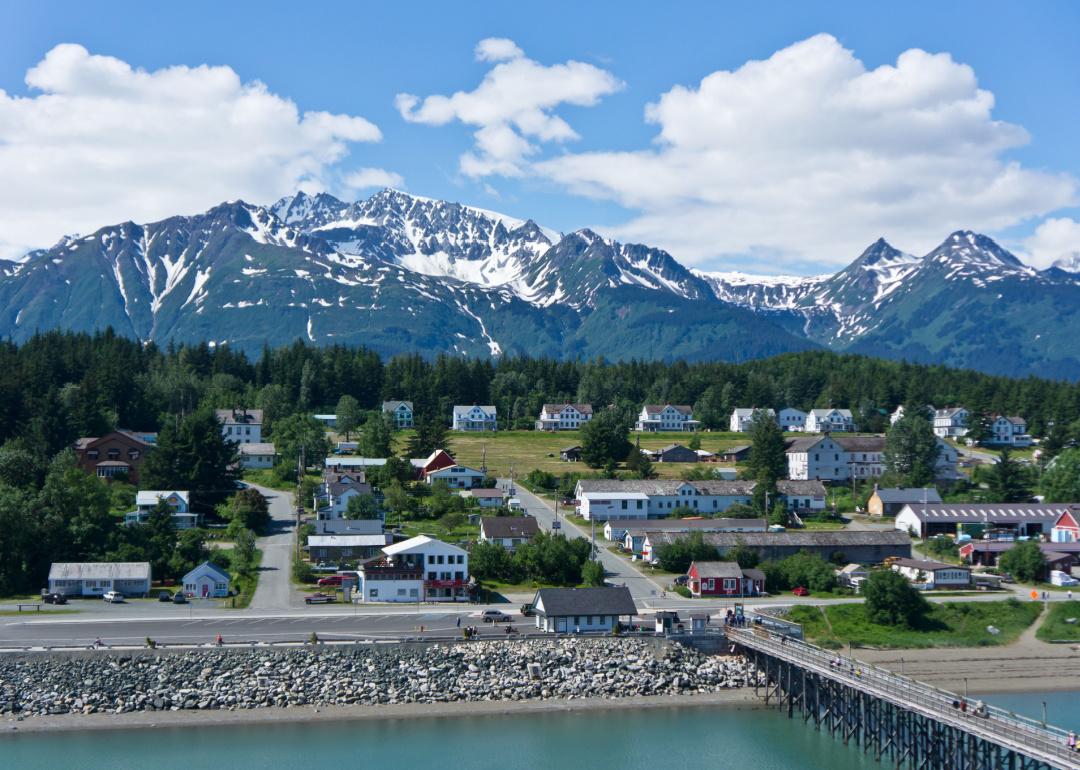
mffoto // Shutterstock
#6. Alaska
Aerial view of Haines Alaska
Average Cost of Living Index: 126.7
The country’s largest state by area is also one of the least populated, with many towns and cities that are difficult to access. Most basic goods must be shipped long distances to get to consumers, which drives up prices. Kodiak and Juneau rank #1 and #3 in the country for highest grocery prices; the cost of living indices in this category are 154.4 and 137.8, respectively. High energy prices also drive up the cost of living.
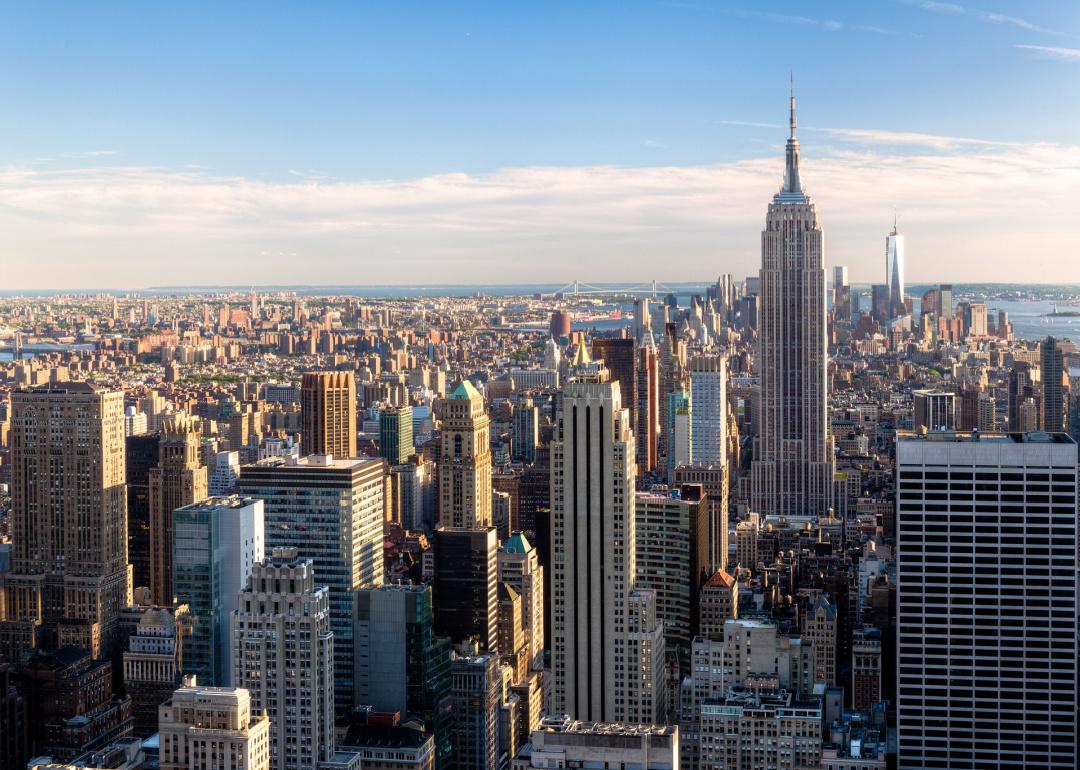
Thiago Leite // Shutterstock
#5. New York
Elevated view of New York City skyline
Average Cost of Living Index: 136.8
At 12.75%, New Yorkers have the country’s highest overall tax burden when combining property tax, income tax, and sales and excise tax. Even for those who don’t own property, New York’s income tax is the highest in the U.S., at 4.9%.
New York City drives up the cost of living in the state. Manhattan is the most expensive place in the country, thanks to a fixed amount of space to build and the high demand to live there.
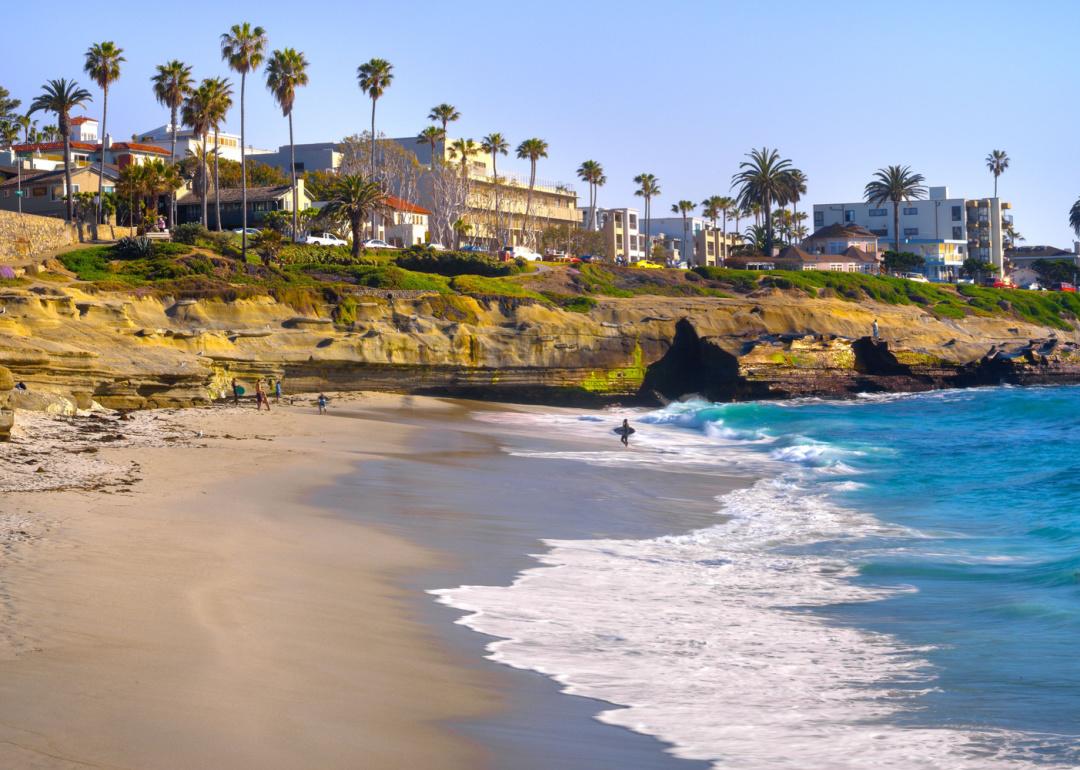
Dancestrokes // Shutterstock
#4. California
Beaches in La Jolla San Diego
Average Cost of Living Index: 139.8
California has notoriously high prices for housing, gas, utilities, and food. Well-paid workers, particularly in the tech sector, have increased demand in a housing market that doesn’t have enough units to support it. Around 40% of homeowners and 50% of renters spend more than 30% of their income on housing costs.
California’s gas prices are also higher than elsewhere due to issues with supply, more state regulations, and high taxes, which at 53.9 cents per gallon, is second only to Pennsylvania.

Sergey Novikov // Shutterstock
#3. Massachusetts
Beacon street view from Boston Common park in Massachusetts
Average Cost of Living Index: 147.9
Housing prices throughout the state continue to be an issue for the state’s affordability ranking. From 2010 to 2021, median home prices rose by almost 8% to $510,000, putting once-affordable cities and suburbs out of reach for many workers.
Supply issues with heating oil and diesel fuel also further increase utility costs. Residents of Massachusetts also have the fourth-highest grocery bills in the country, spending an average of $117 per week, according to a report from Lensa.
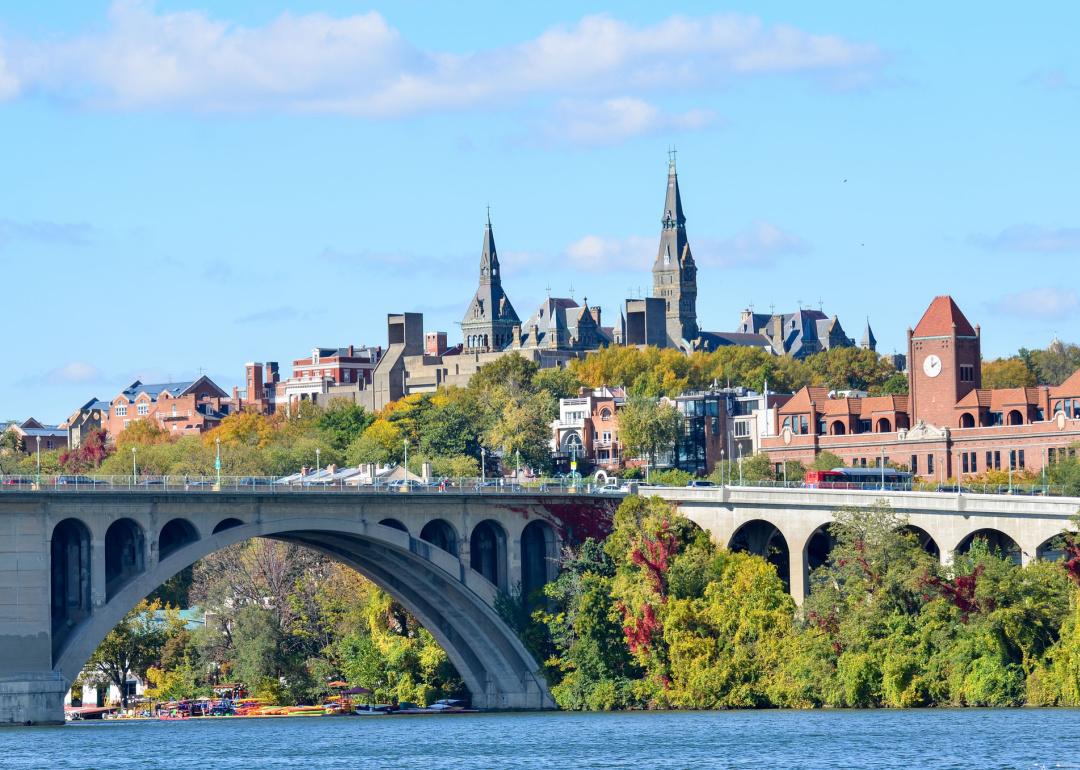
Orhan Cam // Shutterstock
#2. Washington DC
Georgetown and Key bridge in Washington DC
Average Cost of Living Index: 154.5
Washington D.C. has higher state and local tax collections per capita than any other state. In 2019, the most recent year available, it collected $12,130 per capita, while New York, the next highest state, collected $10,213, according to a 2022 report from the Tax Foundation.
Washington D.C. has been short on housing units for years, according to a 2022 report from Up For Growth, causing prices to soar. This shortage is causing a prevalence of “missing households,” where unrelated people live with each other to afford a place to live.
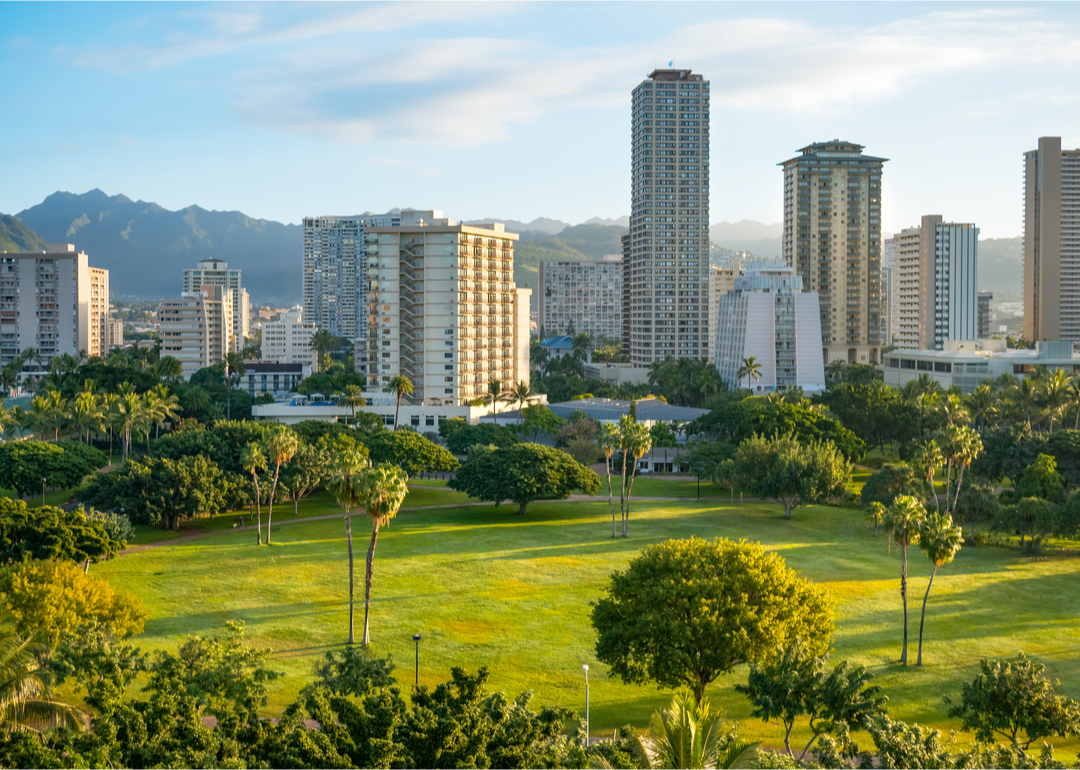
Leigh Trail // Shutterstock
#1. Hawaii
Elevated view of downtown Honolulu Hawaii
Average Cost of Living Index: 189.9
Hawaii is the most expensive state in the nation due to its location. Hawaii cannot produce everything it needs, so it must bring in most goods and services, which significantly adds to costs for everyday goods like groceries.
Hawaii residents also pay far more for electricity than other states because utilities use a lot of petroleum to generate electricity. In June 2022, it cost residents an average of 44.09 cents per kilowatt hour compared to the U.S. average of 15.42 cents, according to the Energy Information Administration.
This story originally appeared on New Jersey Real Estate Network and was produced and
distributed in partnership with Stacker Studio.


